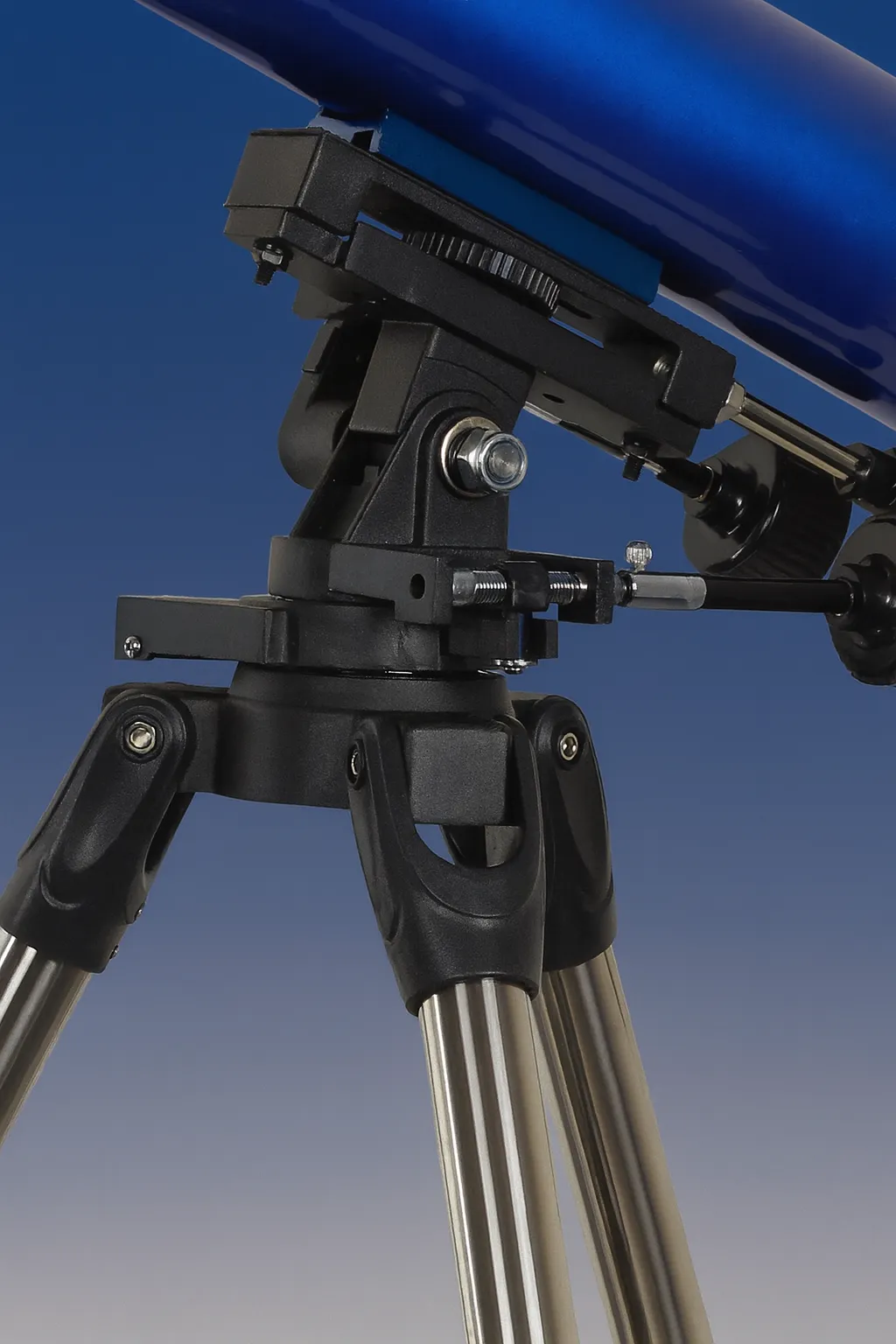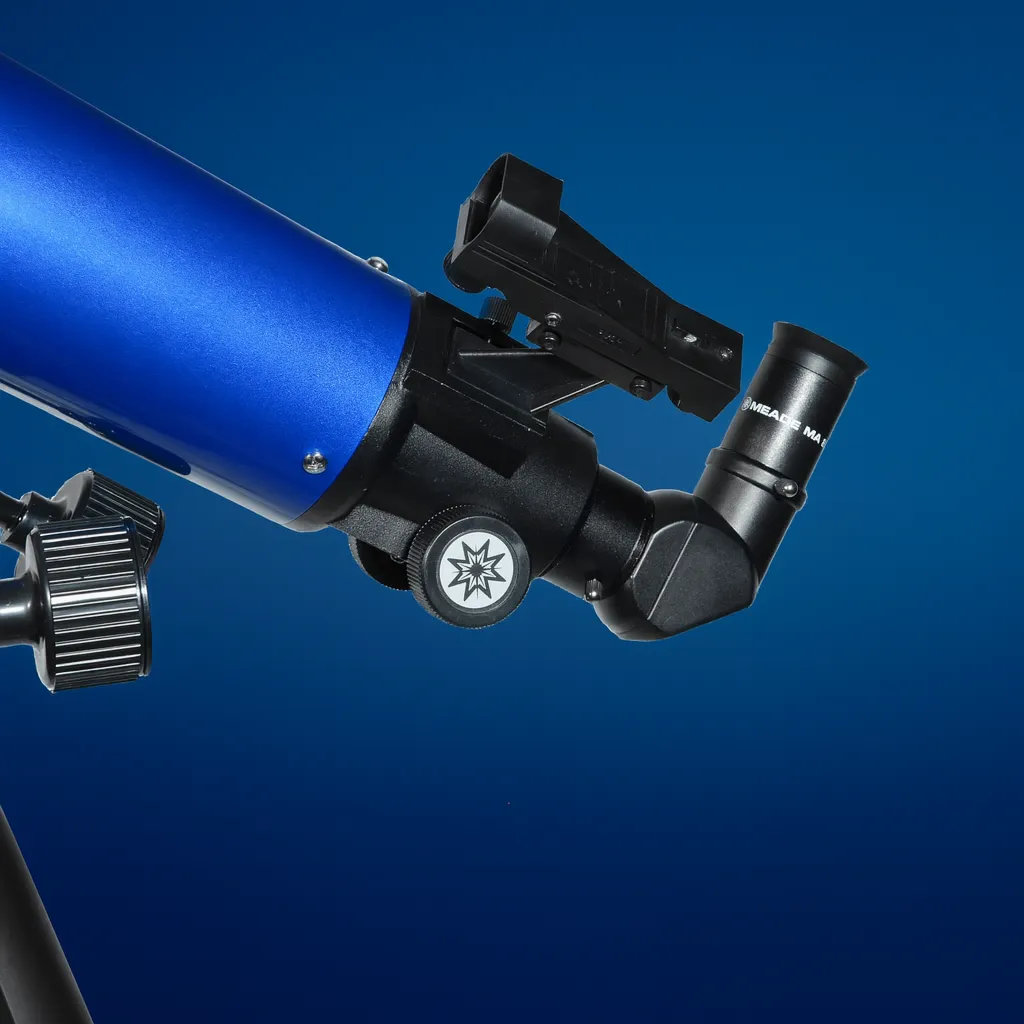Introduction
The Meade Infinity 90mm AZ Refractor is often recommended as a beginner-friendly telescope. Its 90mm aperture and relatively long focal length allow for solid planetary and lunar performance, while keeping the design portable and simple to use. It’s not a powerhouse for faint deep-sky objects, but for bright clusters, nebulae, and Solar System targets, it provides very good views at this price point.
Pros
- Excellent lunar and planetary performance for its price
- Portable and lightweight design
- Better-than-average tripod stability for an entry-level scope
- Metal rack-and-pinion focuser adds durability
Cons
- 90mm aperture limits faint deep-sky visibility
- Plastic alt-az mount struggles at high magnification
- Bundled diagonal dims and distorts images
- Stock eyepieces are serviceable but benefit from upgrades
Optics & Performance
The Infinity 90mm uses a 600mm f/6.7 achromatic refractor design. This focal ratio offers a nice balance between magnification and field of view. Reports highlight that chromatic aberration is less intrusive here than with shorter focal-length refractors in the same series. Bright Solar System targets like the Moon, Jupiter, and Saturn are well within reach, showing crisp planetary detail at medium powers (50x–75x). Moons around Jupiter and Saturn’s Titan are also visible under decent conditions.
Deep-Sky Performance
With 90mm of aperture, faint galaxies and nebulae remain challenging, especially under light-polluted skies. Still, bright deep-sky objects such as the Orion Nebula, Pleiades, Andromeda Galaxy, and Perseus Double Cluster are reported to be enjoyable. This makes the Infinity 90mm a reasonable entry-level option for casual deep-sky viewing, though larger reflectors in the same price range will show more.

Mount & Tripod
The alt-azimuth mount is simple, offering up-down and left-right motion with slow-motion control knobs. It’s mostly plastic, but user feedback suggests it works adequately at low and medium magnifications. At higher powers, stability is less impressive. The steel tripod is sturdier than many bundled with budget scopes, making it a relative strength of this package. One noted drawback is difficulty pointing the tube directly overhead due to interference from the tension knobs.

Accessories
The package includes three Kellner eyepieces (26mm, 9mm, and 6.3mm). While functional, they are not high-end, with the shorter 6.3mm eyepiece being less comfortable to use. Many owners suggest upgrading to Plössl or wide-angle eyepieces for the best experience. The included red dot finder is straightforward and does the job for a scope of this size. The diagonal corrects image orientation for terrestrial viewing, but it dims and distorts celestial targets—worth replacing if astronomy is your main focus.
Conclusion
The Meade Infinity 90mm AZ Refractor is a strong entry-level option for beginners interested primarily in the Moon and planets. Its optical design delivers solid performance on bright objects, the tripod is sturdier than typical at this price, and the metal focuser is a standout feature. However, deep-sky performance is limited by its aperture, and the mount and accessories leave room for improvement. For those who prioritize deep-sky views, a larger reflector may be the better choice.
Disclaimer: This overview is based on official specifications, published reviews, and community feedback. We haven’t personally tested this telescope, but we’ve compiled insights from trusted sources to provide a balanced summary.
